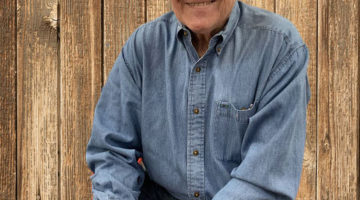Movies of 2011 Recap PART 3: A Year in Fatherhood
Check out: 2011Recap Part 1 Fantasy, Recap Part 2 Women
Women are capable of expressing and experiencing a multitude of conflicting and disparate emotions, simultaneously and strongly. They are naturally open. They are more sensitive, more easily affected, and as a result will more readily evolve, adapt, and change. Men, by nature, are centered, limited to a single focus, not particularly in touch with their own feelings, and curiously oblivious to the feelings of those around them. Yet, contrary to myth (and my wife), men do change. They just need a rather potent stimulant to encourage the process. Four films this year explore men, inspired, moved, and sometimes changed, to various levels of success or failure, by their children.
 The wondrous The Tree of Life is really about two fathers; one who art in heaven, hallowed be His name, and the other mortal but played by a demigod, Brad Pitt.
The wondrous The Tree of Life is really about two fathers; one who art in heaven, hallowed be His name, and the other mortal but played by a demigod, Brad Pitt. Terrence Malick’s astonishing masterpiece of light, movement, and spirit, casts a dizzying spell and somehow manages to pronounce the ineffable while telling its humble tale. With a camera that never ceases to pan, swoop, zoom, and fly, it harnesses the raging bull that is life-in-motion and allows a fleeting inspection. Beyond the phenomenal artistry and vision of his film, Malick dares to investigate the very substance and essence of our existence.
To do this, The Tree of Life puts the microscope on one ordinary family. The O’Briens (mother played with devastating grace by Jessica Chastain, father played by the aforementioned less graceful Mr. Pitt) are a devout clan. They are believers who speak to God, love God, and actively do things to appease and beseech God on a regular basis. The concept is relatable enough. And as they are a human family, they are not perfect in their faith or performance, but they are trying. We know because we are privy to their supplicant whispers.
In a sense, believers – all believers – are discovered at times to be sinners; are at times revealed to be hypocrites. The movie takes this facet of religion for granted and flows past its enchanted audience phantom moments that link together to display our worst and most pitiful as well as our best and most heroic selves.
Mr. and Mrs. O’Brien raise three boys in the green and spacious suburbs of 1950’s Texas and, as life will have it, sooner or later, innocence, just like Paradise, will be lost.
What does it mean when tragedy befalls good people? The Tree of Life asks. What does it tell us when the Father (and the father) treats his children with perceived impunity? When Mrs. O’Brien asks her God these questions and more, Malick confidently answers, quoting the Father of the universe from the Book of Job:
“Where were you when I laid the foundations of the earth? … What supports its foundations, and who laid its cornerstone as the morning stars sang together and all the angels shouted for joy?”
God is not remorseful. Remorse is a human trait and The Tree of Life overflows and nearly drowns in it. There is no relatable storyline to describe when it comes to The Tree of Life. Malick is simply (under the most grand and laudable definition) reflecting and appreciating what it means to be family, to raise children, to fear God, to love one another, and all the other small miracles we awkwardly dance with on any given day.
While shots and scenes are individually airy and ponderous, the film feels incredibly tight and focused. Even an interlude taking us back in awe-inspiring fashion to the dawn of creation feels pre-destined. Each beautiful frame expresses something painfully real about being alive and part of a family.
In a cynical world (which this is), it would be easy to call a film about belief, God, and meaning pretentious or naïve, but The Tree of Life is so secure in its message and so authoritative in its execution (both in terms of imagery and performance) that it transcends such criticism. It only veers into the arena of the absurd over the course of its last fifteen minutes (and that slip-up amounts to a travesty). I hate to pick on such a gift as this, but really Sean Penn’s character (a grown up, tortured version of one of the O’Brien boys) is extraneous in a film that already runs over two hours. Even with the editing miscue, The Tree of Life is the best film of the year.
 Emilio Estevez’s sparkling ode to meaningful living and self-discovery, The Way, does not ultimately match Malick’s effort, but nothing we will see for a long time will. The Way is about a father trying to bond with, understand, and mourn his son, all at the same time. One could argue that the plot of The Way is irrelevant, because – as the title suggests – life is not about what you plan (what you plot); it is about what happens uncharted and unforeseen along the way. Oftentimes the distractions are more significant to our experience than the destination. It all depends on whether one has the perspective to recognize the inherent value in the journey. Estevez, directing from his own script, seems to hold this philosophy dear.
Emilio Estevez’s sparkling ode to meaningful living and self-discovery, The Way, does not ultimately match Malick’s effort, but nothing we will see for a long time will. The Way is about a father trying to bond with, understand, and mourn his son, all at the same time. One could argue that the plot of The Way is irrelevant, because – as the title suggests – life is not about what you plan (what you plot); it is about what happens uncharted and unforeseen along the way. Oftentimes the distractions are more significant to our experience than the destination. It all depends on whether one has the perspective to recognize the inherent value in the journey. Estevez, directing from his own script, seems to hold this philosophy dear.
Fortunately, the Brat Packer turned noble but only quasi-successful filmmaker (The Way is by far the jewel of his résumé) chooses to deliver the lesson by transporting his audience to the foothills of the Pyrenees Mountains by the French-Spanish border. Martin Sheen, Estevez’s father, quietly but forcefully portrays Thomas Avery, a buttoned up, practical man who loved but could never find common ground with his adult son Daniel (embodied by Estevez and always seen with a wistful, world weary, and wise smirk in mainly ghostly appearances, so, yes, we are in meta territory here). Daniel was on one of his wherever-the-wind-may-take-you trips when he died; this time following the Camino de Santiago, a thousand year old spiritual pilgrimage to the cathedral where the apostle Saint James is said to be buried.
Much like The Tree of Life, The Way seeks to say something compelling about the relationship between fathers and sons as well as between man and God. While not everyone who travels The Camino (as it is known) is religious, we see that Mr. Avery and the colorful cast of characters he teams with along the way do find salvation and faith of one kind or another. The individual moments depicted of revelation and penitence are undeniably powerful.
Although The Way is prone to striking the occasional false note (Deborah Kara Unger’s clichéd nicotine addict is a prime example), it is uncommonly strong in terms of atmosphere. Between the sprightly soundtrack, the sensational on-location shoot, the anchoring performance by Sheen, and the methodological freedom permitted so that Avery’s pilgrimage can naturally take its course, The Way immerses body and soul.
Thomas Avery eventually finds some peace as he tosses his son’s ashes into the ocean with his new Camino family watching from a distance, but before the credits roll, we see him off in some foreign land, expanding his horizons and sopping up life’s potential (and thereby keeping continued company with Daniel). As Avery walks the world’s road he can hear the echo of his boy’s mantra ringing in his head “You don’t choose a life, dad. You live one.”
The Tree of Life and The Way take very seriously their facility to say something resounding about fathers and the trials they endure raising children. About fathers trying to give their offspring space, instilling values, maintaining discipline, and showing love at the risk of weakness (or perhaps weakness at the risk of love). Compared to these cinematic accomplishments, a film like Alexander Payne’s The Descendants is the ugly stepsister. Because it was released in the same season, The Descendants is disappointing; however, because it was directed by someone of Payne’s caliber and starring the likes of George Clooney, it is also frustrating. To say that I am baffled by the praise this film has received would be an understatement.
 Payne’s writing – based on the Kaui Hart Hemmings novel – is the epitome of arrogant and indulgent. It presumes that after the effervescent brilliance of Payne’s last film (2004’s Sideways), the filmmaker could do no wrong. Here, he submits a screenplay that involves a Honolulu based family in crisis as the mother of two girls winds up in a coma after a boating accident. She will soon be removed from life support and her husband, attorney Matt King (played by the dazed, fidgety, quirky George Clooney – I prefer the cool, laser-focused one), is trying to do the right thing for all involved in the face of adversity. He also is dealing with a pending proposed land sale related to valuable acreage that the larger family has owned on the Kauai coast for generations. I’m becoming distressed even recalling the details; they are so miserably convoluted and contrived.
Payne’s writing – based on the Kaui Hart Hemmings novel – is the epitome of arrogant and indulgent. It presumes that after the effervescent brilliance of Payne’s last film (2004’s Sideways), the filmmaker could do no wrong. Here, he submits a screenplay that involves a Honolulu based family in crisis as the mother of two girls winds up in a coma after a boating accident. She will soon be removed from life support and her husband, attorney Matt King (played by the dazed, fidgety, quirky George Clooney – I prefer the cool, laser-focused one), is trying to do the right thing for all involved in the face of adversity. He also is dealing with a pending proposed land sale related to valuable acreage that the larger family has owned on the Kauai coast for generations. I’m becoming distressed even recalling the details; they are so miserably convoluted and contrived.
Hawaii’s lush and luminous landscape is well appreciated, but it does nothing to mask the maddeningly irrational plot-points Payne expects us to swallow in the name of an alleged skewering social commentary. Beyond our island hopping with the mildly distracting King, there is no plausible action or crisis propelling matters forward. The best we have is that King wants his wife’s secret lover to get a chance to say goodbye to her (and the man also happens to be tangentially involved in the land purchase). We are asked to find meaning (or, at the very least, entertainment) watching Matt interact with his immediate and extended family. Matt’s oldest daughter (played with jailbait WB11 proto-typicality by Shailene Woodley) is shadowed by a boyfriend seemingly conceived as a South Park/Happy Madison hybrid, and we are expected to extend a standing ovation for such ingenuity.
 Nearly every element of the slow moving (for lack of substance) premise is mind-blowingly amateurish. Without an honest motivation to maneuver our characters throughout the lovely tropical paradise, everything on screen (all the showy attempts at satire and agitation) is undermined. I don’t know if the writer/director has children, but by making a film about a man coming to grips with the responsibilities of fatherhood, Payne has exposed himself to be, in regard to that vital dimension of life, on an island unto himself.
Nearly every element of the slow moving (for lack of substance) premise is mind-blowingly amateurish. Without an honest motivation to maneuver our characters throughout the lovely tropical paradise, everything on screen (all the showy attempts at satire and agitation) is undermined. I don’t know if the writer/director has children, but by making a film about a man coming to grips with the responsibilities of fatherhood, Payne has exposed himself to be, in regard to that vital dimension of life, on an island unto himself.
Rampart’s problem is the opposite of what ails The Descendants. The motivations are sensible; it is the characters lacking in believability. Thankfully, the ever-watchable Woody Harrelson re-teamed with his The Messenger director, Oren Moverman, to carry what may have otherwise been relegated to late night TMC and the discount DVD racks at Duane Reade. (As an aside, between Moverman and Paranormal Activity’s Oren Peli, Hollywood has filled its quota of conspicuously Israeli filmmakers). Essentially, Rampart is an old-fashioned, by-the-numbers dirty-cop movie (written by Moverman and legendary pulp writer James Ellroy). If it has anything unique that defines or separates it from dozens of films starring Michael Madsen, Marc Singer, Yaphet Kotto, or all three, Rampart stands apart because of Harrelson’s wild, over the top performance as well as the concentration on his peculiar family dynamic.
Harrelson plays veteran police officer Dave “Date Rape” Brown operating in scandalized 1990’s Los Angeles. Brown is notorious in the precincts and neighborhoods for his aggressiveness, corrupt proclivities, and one infamous (and unresolved) incident that left a suspect dead.
But we are not here to focus on the politics or rationalized misdeeds of an officer in the line of duty, which is well-tread terrain. We are not even here to consider the actual LAPD Rampart Division misconduct, and its aftermath, which hangs like a storm cloud in the grim atmosphere. Rampart is the kind of movie where our protagonist’s challenges and debacles are piled on. One of those relentless downward spiral movies where conclusions are drawn early (although Moverman neglects to see the tragedy through, opting for meandering ambiguity). What we can sink our teeth into, rather, is the failed, ostensibly irredeemable relationship that Brown has developed with his daughters. (Bizarrely enough, the girls are stepsisters and first cousins in that Brown consecutively married and impregnated two sisters; a needless, provocative quirk summed up in a strained bit of exposition).
We watch in horror as Brown sabotages and ambushes his deep, pathetic love for his daughters at every turn. They look down upon him with appropriate fear and disgust. Pity is a privilege, Rampart exhibits, not a right. Brown is not worth the trouble. Between the drinking, drugs, misogyny, and upheaval running through his veins, establishing a relationship with the man is a frivolous pursuit. If he is not gone today he will be gone tomorrow.
Moverman, who ironically has a compulsory camera moving disorder (and not in the good Terrence Malick way), does a very fine, subtle job of showing us the way parents can (and certainly do) intentionally (and often times unintentionally) wound their kids. Our words and actions are as permanent and harmful as a bullet to the gut.
We think our sons and daughters will always intuit our love and so, no matter what, all will be forgiven. We presuppose our children know that no matter how flagrant our behavior, no matter how inflammatory our words, we don’t really mean it.
The lesson to be derived from four movies this year about fatherhood is that our love for our children must be actually (and somehow always) shown; not presumed, not taken for granted. Because when it comes to our children, forgiveness and time are commodities in limited and unaccountable supply.









